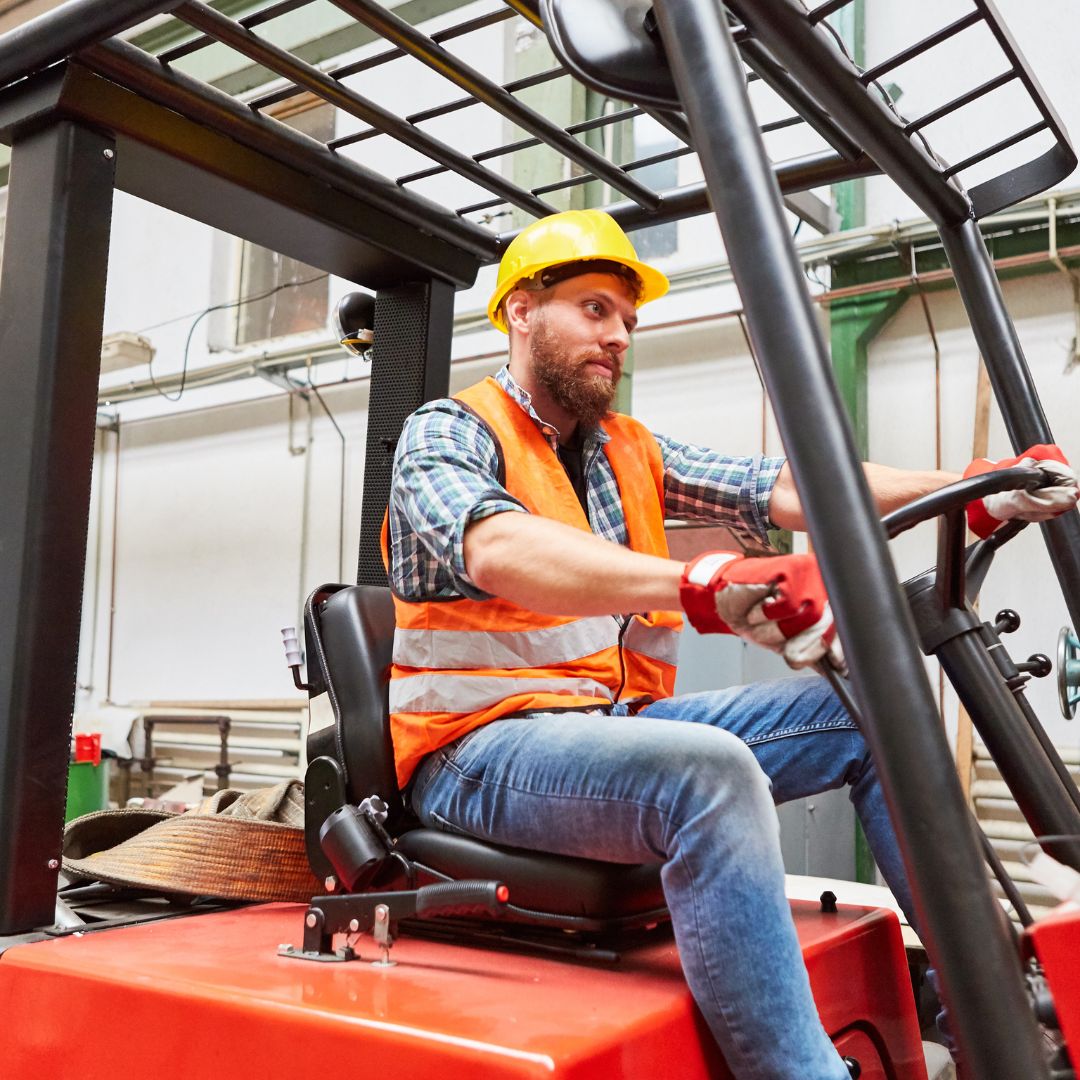Forklift operators and material handlers both play essential roles in warehouse operations, yet their responsibilities, skills, and demographics highlight some key differences. While both positions contribute to the flow of goods in and out of warehouses, the distinctions between them can impact hiring, training, and workflow efficiency.
Warehouse jobs offer an incredible opportunity to dive into the dynamic world of warehousing and distribution. In bustling hubs like Indianapolis and Chicago, home to some of the nation’s largest warehouses, there’s constant demand for talented, hardworking individuals. At Temp Staffing Inc., we provide top positions tailored to both forklift operators and material handlers, each with unique responsibilities to match the job description.
Whether you thrive on precision or physical engagement, in this article, our experts will provide a closer look at these roles, with a breakdown of the differences between forklift operators and material handlers.
Learn How You Can Leverage Temp Staffing Inc. Warehouse Services Today!
Job Responsibilities
While both roles involve moving materials, forklift operators are more focused on using specialized equipment for heavy-duty lifting, whereas material handlers engage in a wider array of tasks supporting overall warehouse management.
Forklift Operators
As you know, forklift operators are responsible for moving, loading, and unloading materials that are too large or heavy to be handled manually. Using forklifts, they navigate tight spaces and lift bulky or high-stacked items with precision. This role demands not only physical skill but a strong commitment to safety. With forklift-related accidents accounting for about 30% of warehouse injuries, operators must adhere to strict safety protocols to prevent mishaps. Their ability to safely and efficiently operate this specialized equipment is critical to maintaining a smooth workflow and preventing costly damage to both products and infrastructure.
Material Handlers
Material handlers are versatile players in the warehouse, balancing physical labor with equipment operation and operating powered industrial trucks. The responsibilities of a material handler are far-reaching, ranging from organizing inventory and preparing goods for shipment to ensuring that stock is easy to locate and access. Unlike forklift operations, material handlers work with a variety of tools, such as pallet jacks, hand trucks, and, occasionally, forklifts, as long as they hold the necessary certification. Their role is more dynamic, requiring adaptability and the ability to handle different tasks throughout the day. By ensuring smooth transitions between different stages of warehouse processes, material handlers help keep the operation running seamlessly.
Required Skills and Qualifications
Forklift operators’ skills focus on equipment operation and safety, while material handlers need a more comprehensive understanding of warehouse logistics and inventory processes.
Forklift Operators
Forklift operators receive specialized training, often accompanied by legally mandated certification, to ensure they can safely manage heavy loads and large machinery. This training encompasses essential topics such as hazard identification, load balancing, and safe powered industrial truck and equipment operation. With strong spatial awareness, experienced operators can maneuver through narrow aisles and busy areas with minimal disruption, reducing product damage and enhancing overall workflow. Their ability to handle these challenges makes them critical to efficient warehouse operations.
Material Handlers
Material handlers, while generally not requiring specific certifications, bring a well-rounded knowledge of warehouse logistics. They understand each step in the supply chain, from receiving shipments to staging products for dispatch. This broad familiarity with inventory processes makes them adept at managing stock levels and quickly adapting to shifting priorities. Their role often demands proficiency with various types of equipment and flexibility to step into different tasks as needed, making them versatile team members who support the warehouse’s dynamic demands.
Learn How You Can Leverage Temp Staffing Inc. Warehouse Services Today!
Demographics
While both fields are male-dominated, material handling shows a slightly higher gender diversity. The age statistics also suggest that forklift operators tend to have more experience, which aligns with the specialized training and higher level of responsibility associated with their role.
Forklift Operators
Forklift operators are overwhelmingly male at 88%, with 88% of the workforce identifying as men, a trend that is likely linked to the specialized training and rigorous safety features and protocols required to operate heavy machinery. The role also demands a higher level of experience, with the average age of a forklift operator being 43 years old. This suggests that many operators stay in the field for an extended period, gaining the expertise necessary to handle complex machinery safely in busy environments. The combination of specialized skill and responsibility makes forklift operation a role that tends to attract more experienced workers.
- Average age: 43
- Gender ratio: 88% male, 12% female
Material Handlers
Material handlers, on the other hand, have a more diverse gender representation, with 77.6% of workers male and 22.4% female. This higher percentage of women reflects the role’s broader skill set and physical demands, which can appeal to a wider range of individuals. Material handling also attracts a more varied age group, with the average age of workers being 40, suggesting that the job is suitable for both younger individuals looking to build experience and more seasoned professionals seeking variety in their tasks. The diversity in both gender and age contributes to the flexibility of the role, allowing workers to adapt to a range of logistics functions within the warehouse.
- Average age: 40
- Gender ratio: 77.6% male, 22.4% female
Education
Both forklift operators and material handlers often share similar educational foundations, typically requiring no more than a high school diploma or equivalent. However, there is a slight distinction between the two: approximately 59% of forklift operators have completed high school, compared to 51% of material handlers.
This minor difference suggests that forklift operators may be slightly more likely to have a formal educational background. This could reflect the specialized nature of their work, as forklift operators must master specific skills and technical knowledge to safely and efficiently handle machinery. In contrast, while material handlers play a vital role in the logistics chain, their responsibilities are often broader, potentially demanding less formal training.
Learn How You Can Leverage Temp Staffing Inc. Warehouse Services Today!
Conclusion
Forklift operators and material handlers have distinct, complementary roles within a warehouse setting. Forklift operators bring specialized skills in machinery operation and safety compliance, which are essential for transporting heavy goods. Material handlers, on the other hand, take on a more varied set of responsibilities that support inventory management, order preparation, and overall warehouse flow.
Understanding these differences between forklift jobs and material handling helps warehouse managers deploy staff more effectively, ensuring that both heavy-duty and logistical tasks are managed efficiently. For individuals considering careers in warehousing, these distinctions can guide their choices based on skill preferences, whether or not they are properly trained, and the type of work environment they’re seeking.
With both roles contributing uniquely to warehouse operations as well as to reduce operating costs, a balanced staffing approach can optimize productivity and ensure a smooth workflow from start to finish. At Temp Staffing Inc., we specialize in connecting companies with workers who are not only reliable but also perfectly suited to these distinct, essential roles.







